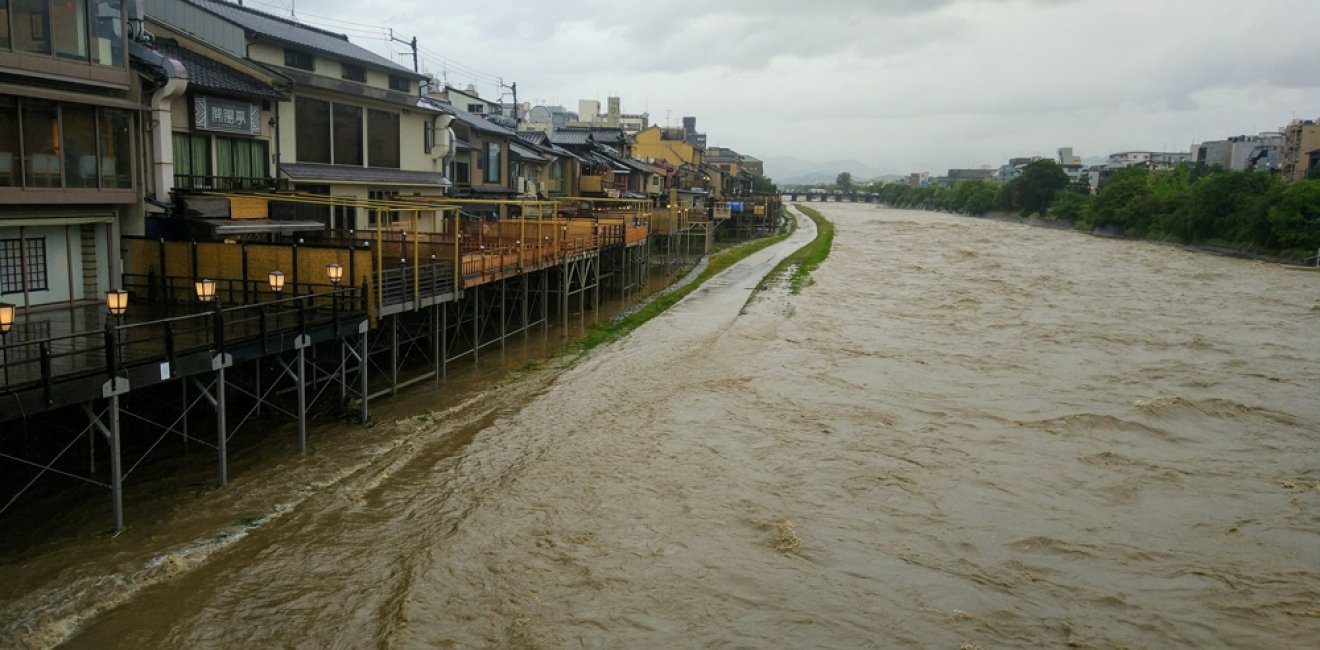
A blog of the Indo-Pacific Program
From earthquakes to tsunamis, Japan has always been vulnerable to natural disasters. Its latest crisis, though, stems not from being in the midst of the Pacific’s Ring of Fire and the plate tectonics, but from a record-breaking downpour of rain. Over 200 people have died after a torrential downpour west of the country earlier this month. As the government steps up emergency responses to deal with the aftermath of the floods, it’s clear that Japan’s vulnerabilities to natural disasters has only increased. Given its high-risk location, how the country enhances its disaster prevention, response, and relief capabilities will be a challenge that the current and future administrations will need to address. There’s also another question. Who can it call upon to help in times of trouble?
After the devastating earthquake, tsunami, and nuclear fallout of March 2011, 163 governments and 43 international organizations offered assistance to help Japan recover from the triple disaster that led to nearly 16,000 deaths. From China to Cambodia and Turkey and Uzbekistan, international support to help the world’s third largest economy was striking. But one of the most ardent supporters was not the United States or a European nation, but rather neighboring Taiwan. Taipei was not only one of the biggest financial supporters, offering over $252 million, but it was also one of the first to provide humanitarian relief through rescue teams and care packages, while grass-root fundraisers to support Japan spread across Taiwan. The United States, though, was the single biggest provider of aid both financially and in physical assistance, offering over $700 million and mobilizing its military to be on the frontline of relief efforts, while agencies including the Nuclear Regulatory Commission were crucial for assisting in dealing with the nuclear fallout.
Even at that time, however, there had been criticism by some about the need for countries to provide financial aid to the third-largest economy in the world in particular. But by and large, the silver lining of the disaster was that it spurred international support and solidarity in response to a pressing humanitarian need that no country could ever be adequately prepared for.
The so-called triple disaster of the Fukushima garnered the world’s attention not just for its sheer scale, but it also raised alarm bells given the nuclear dimension. The landslides and flooding as a result of the torrential downpour in July, though tragic, pale in comparison. Perhaps that’s why Taiwan’s tradition of actively supporting Japan has been more gratefully acknowledged than ever. Taipei has offered $180,000, which of course is a fraction of what it had provided post-quake seven years ago. But it is nearly double the $100,000 offered by the United States. Granted, with reconstruction costs estimated to reach tens of millions of dollars, both the Taiwanese and the U.S. contributions are but a tiny drop in the bucket of necessary reconstruction costs.
What is clear from Taipei’s assistance, though, is that help goes far beyond money. It is a clear demonstration of both sides being prepared to step in to provide aid and support to one another, as both face similar geographic challenges. The fact that President Tsai Ing-wen was one of the first world leaders to tweet her condolences—in Japanese—for lives lost, and to offer her government’s support to Tokyo, has only increased the goodwill. Prime Minister Shinzo Abe was quick to offer his thanks back to her in Chinese. President Trump, on the other hand, tweeted out his support for the flood victims nearly a week after Tsai.
As social media plays an ever-increasing role in shaping diplomatic relations and world views, words matter far more in building ties and setting the tone for bilateral relationships. Words, in fact, can actually mean more than financial aid. Taipei’s quick, comprehensive response to Japan at a time of need was not only seen by the leadership in Tokyo, but also to the Japanese public at large. As Taiwan seeks support to ensure that its unique international status is not chipped away, grassroots support for Taipei will no doubt remain strong in Japan.
Image: VIGO-S / Shutterstock.com
The views expressed are the author's alone, and do not represent the views of the U.S. Government or the Wilson Center. Copyright 2018, Asia Program. All rights reserved.
Author


Indo-Pacific Program
The Indo-Pacific Program promotes policy debate and intellectual discussions on US interests in the Asia-Pacific as well as political, economic, security, and social issues relating to the world’s most populous and economically dynamic region. Read more





